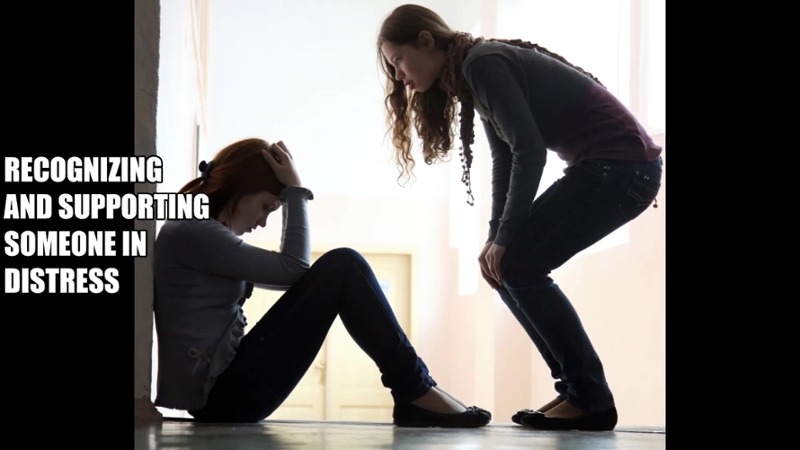Recognizing Someone in Distress

Do you believe someone may need help? You may be the first person to see signs that someone you know is in distress, or they may come to you specifically for help. Use this guide to familiarize yourself with common signs of distress, from mild to severe, and the steps you can take to offer assistance.
There are physical, behavioural, emotional and academic signs that indicate someone may be experiencing difficulty. They may exhibit a few or many of these signs which could indicate their safety may be at immediate risk and require action.
Physical Indicators
- Deterioration in physical appearance or personal hygiene
- Excessive fatigue, exhaustion
- Visible changes in weight; statements about changes in appetite or sleep
- Noticeable cuts, bruises or burns
- Frequent or chronic illness
- Disorganized speech, rapid or slurred speech, confusion
- Unusual inability to make eye contact
Behaviour and Emotional Indicators
- Direct statements indicating distress, family problems or loss
- Difficulty controlling emotions
- Angry or hostile outbursts; yelling or aggressive comments
- More withdrawn or animated than usual
- Expressions of hopelessness or worthlessness; crying or tearfulness
- Expressions of severe anxiety or irritability
- Excessively demanding or dependent behaviour
- Lack of response to outreach from course staff
- Shakiness, tremors, fidgeting or pacing
Risk of Safety Indicators
- Written or oral statements that mention despair, suicide or death
- Severe hopelessness, helplessness, depression, social isolation and withdrawal
- Statements to the effect the student is “going away for a long time.”
- Written or oral expressions of a desire to injure or kill someone else
Academic Indicators
- Repeated absences.
- Missed assignments, exams or appointments.
- Deterioration in quality or quantity of work.
- Extreme disorganization or erratic performance.
- Written or artistic expression of unusual violence, morbidity, social isolation, despair or confusion; essays or papers that focus on suicide or death.
- Continual seeking of special provisions (extensions on papers, make-up exams).
Emergency Indicators
- The person is physically or verbally aggressive toward her/himself, others, animals or property.
- The person is unresponsive to the external environmental; she/he is: Incoherent or passed out.
- Demonstrating a severe disturbance of cognitive, behavioural or emotional functioning.
- Displaying disruptive behaviour that appears to be out of control.
- The situation feels threatening or dangerous to you.
In these or other emergency situations OFF campus: Call 9-1-1 and, if possible, call Campus Security (306) 585-4999 - 24/7.

Other factors
- Expressions of concern about a student by her/his peers, teaching assistant or other colleagues.
- A hunch or gut-level reaction somethin is wrong.

